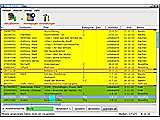 VideLibri lists the books you have borrowed from a public library and lets you search the library catalog from your local device. It has all the usual features of a library OPAC, i.e. viewing, renewing, searching and ordering books. It also renews all due books automatically and can do other things only a locally running app can do, like keeping a history of all ever borrowed books across multiple libraries. Developed since 2006 it is the world's first library app, and by supporting 20 different
VideLibri lists the books you have borrowed from a public library and lets you search the library catalog from your local device. It has all the usual features of a library OPAC, i.e. viewing, renewing, searching and ordering books. It also renews all due books automatically and can do other things only a locally running app can do, like keeping a history of all ever borrowed books across multiple libraries. Developed since 2006 it is the world's first library app, and by supporting 20 different
 The Bigloo Programming Language The Bigloo programming is a strict-parenthetical-function programming language. It belongs to the Lisp programming language family, and more specifically, it is a descendant of the Scheme programming language. Its design is governed by one rule: enabling Scheme-based programming style where C(++) is usually required. Bigloo aims at being a practical programming language and a practical programming environment. For it offers features usually presented by traditio
The Bigloo Programming Language The Bigloo programming is a strict-parenthetical-function programming language. It belongs to the Lisp programming language family, and more specifically, it is a descendant of the Scheme programming language. Its design is governed by one rule: enabling Scheme-based programming style where C(++) is usually required. Bigloo aims at being a practical programming language and a practical programming environment. For it offers features usually presented by traditio
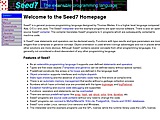 Seed7 is a general purpose programming language. It is a higher level language compared to Ada, C++, and Java. In Seed7, new statements and operators can be declared easily. Functions with type results and type parameters are more elegant than a template or generics concept. Object orientation is used when it brings advantages and not in places when other solutions are more obvious. Although Seed7 contains several concepts of other programming languages, it is generally not considered as a direc
Seed7 is a general purpose programming language. It is a higher level language compared to Ada, C++, and Java. In Seed7, new statements and operators can be declared easily. Functions with type results and type parameters are more elegant than a template or generics concept. Object orientation is used when it brings advantages and not in places when other solutions are more obvious. Although Seed7 contains several concepts of other programming languages, it is generally not considered as a direc
 Gambas is an IDE and BASIC interpreter with object-oriented extensions. It's designed to ease building graphical applications programs using Gtk+ or Qt, and runs on most Unix and Linux systems. With its runtime standalone applications can be packaged, even command-line programs. The Gambas3 JIT-compiling interpreter often executes faster than Perl or Python apps. It also supports SDL, OpenGL and OpenAL, MySQL or PostgreSQL databases, CGI webserver interfacing,
Gambas is an IDE and BASIC interpreter with object-oriented extensions. It's designed to ease building graphical applications programs using Gtk+ or Qt, and runs on most Unix and Linux systems. With its runtime standalone applications can be packaged, even command-line programs. The Gambas3 JIT-compiling interpreter often executes faster than Perl or Python apps. It also supports SDL, OpenGL and OpenAL, MySQL or PostgreSQL databases, CGI webserver interfacing,
 CJIT is a C interpreter that lets you run C code instantly, without needing to build it first. It is just one small file and can do everything a C compiler does, including call functions from any installed library. It works on Linux, Windows, and MacOSX.
CJIT is a C interpreter that lets you run C code instantly, without needing to build it first. It is just one small file and can do everything a C compiler does, including call functions from any installed library. It works on Linux, Windows, and MacOSX.
 Spyder is a powerful scientific environment written in Python, for Python, and designed by and for scientists, engineers and data analysts. It offers a unique combination of the advanced editing, analysis, debugging, and profiling functionality of a comprehensive development tool with the data exploration, interactive execution, deep inspection, and beautiful visualization capabilities of a scientific package. Beyond its many built-in features, its abilities can be extended even further via its
Spyder is a powerful scientific environment written in Python, for Python, and designed by and for scientists, engineers and data analysts. It offers a unique combination of the advanced editing, analysis, debugging, and profiling functionality of a comprehensive development tool with the data exploration, interactive execution, deep inspection, and beautiful visualization capabilities of a scientific package. Beyond its many built-in features, its abilities can be extended even further via its
 Objeck is an open-source programming language inspired by Java and influenced by Scheme and UML. Objeck was designed to be fast, easier to use, lightweight and cross-platform.
Objeck is an open-source programming language inspired by Java and influenced by Scheme and UML. Objeck was designed to be fast, easier to use, lightweight and cross-platform.
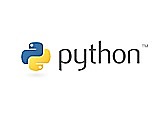 Python is an interpreted and object-oriented programming language. It runs on many plattforms and its powerful yet coherent syntax makes it well-suited for experts and beginners. It's strongly-typed and dynamic, provides for modules, polymorphic classes, exceptions, and high level data types and control structures. Bindings exists for a wide range of libraries, such as system interfaces, windowing and graphical toolkits. Modules exist for high-level mathematic and scientific applications, text p
Python is an interpreted and object-oriented programming language. It runs on many plattforms and its powerful yet coherent syntax makes it well-suited for experts and beginners. It's strongly-typed and dynamic, provides for modules, polymorphic classes, exceptions, and high level data types and control structures. Bindings exists for a wide range of libraries, such as system interfaces, windowing and graphical toolkits. Modules exist for high-level mathematic and scientific applications, text p
 LIPS is a powerful Scheme-based, Lisp language written in JavaScript. It is based on the Scheme dialect and the R5RS/R7RS specifications. It has extensions to make it easier to interact with JavaScript. It works both in the browser and with Node.js.
LIPS is a powerful Scheme-based, Lisp language written in JavaScript. It is based on the Scheme dialect and the R5RS/R7RS specifications. It has extensions to make it easier to interact with JavaScript. It works both in the browser and with Node.js.
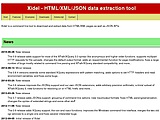 Xidel is a command line tool to download web pages or JSON-APIs and extract data from them. It can download files over HTTP/S connections, follow redirections, links, (partially) filled-in forms, extracted values, and process local files. The data can be extracted using XPath 2.0, XQuery 1.0, XPath/XQuery 3.0 and JSONiq expressions, CSS 3 selectors, and custom, pattern-matching templates that are like an annotated version of the processed page. The extracted values can then be exported as plain
Xidel is a command line tool to download web pages or JSON-APIs and extract data from them. It can download files over HTTP/S connections, follow redirections, links, (partially) filled-in forms, extracted values, and process local files. The data can be extracted using XPath 2.0, XQuery 1.0, XPath/XQuery 3.0 and JSONiq expressions, CSS 3 selectors, and custom, pattern-matching templates that are like an annotated version of the processed page. The extracted values can then be exported as plain
 dMagnetic is an interpreter for classic text adventure games by Magnetic Scrolls, such as "The Pawn" or "The Guild Of Thieves". The full list of supported games is: - "The Pawn" - "The Guild Of Thieves" - "Jinxter" - "Corruption" - "Fish!" - "Wonderland" - "Myth"
dMagnetic is an interpreter for classic text adventure games by Magnetic Scrolls, such as "The Pawn" or "The Guild Of Thieves". The full list of supported games is: - "The Pawn" - "The Guild Of Thieves" - "Jinxter" - "Corruption" - "Fish!" - "Wonderland" - "Myth"
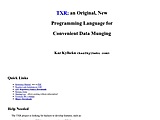 TXR is a "data munging" language which combines a convenient text extraction notation that with an innovative, feature-rich Lisp dialect.
TXR is a "data munging" language which combines a convenient text extraction notation that with an innovative, feature-rich Lisp dialect.
 Boron is an interpreted, prototype-based, scripting language similar to Rebol. The interpreter and datatype system is a C library useful for building domain specific languages embedded in C/C++ applications.
Boron is an interpreted, prototype-based, scripting language similar to Rebol. The interpreter and datatype system is a C library useful for building domain specific languages embedded in C/C++ applications.
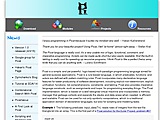 Picat is a rule and logic based programming language. Its syntax is derived from pattern matching rules, but allows traditional declarative and imperative programming and is suitable for general-purpose development. It runs in a VM, with automatic stack/heap allocation and garbage collection.
Picat is a rule and logic based programming language. Its syntax is derived from pattern matching rules, but allows traditional declarative and imperative programming and is suitable for general-purpose development. It runs in a VM, with automatic stack/heap allocation and garbage collection.
 A typed language with modern flexible syntax. In the process of becoming usable. It takes features I like from other languages: - Type inference - Main C control flow statements - Python-like foreach and forange - functions, modules, classes and more.
A typed language with modern flexible syntax. In the process of becoming usable. It takes features I like from other languages: - Type inference - Main C control flow statements - Python-like foreach and forange - functions, modules, classes and more.
 Dyalect is a dynamic programming language for .NET Core platform. It is lightweight, fast and modern. Dyalect (or Dy for short) is written in C# and has zero dependencies except for standard .NET Core libraries, which means that it can seamlessly run on Windows, MacOS and Linux. Moreover you can use the same binaries on any of these platforms! Dy doesn't utilize DLR nor does it compile to IL (.NET assembly). Instead it runs on the top of its own high performance virtual machine. It compiles fas
Dyalect is a dynamic programming language for .NET Core platform. It is lightweight, fast and modern. Dyalect (or Dy for short) is written in C# and has zero dependencies except for standard .NET Core libraries, which means that it can seamlessly run on Windows, MacOS and Linux. Moreover you can use the same binaries on any of these platforms! Dy doesn't utilize DLR nor does it compile to IL (.NET assembly). Instead it runs on the top of its own high performance virtual machine. It compiles fas
 Zenroom is a brand new, small and portable virtual machine for cryptographic operations. The Zenroom VM has no external dependencies, is smaller than 2MB, runs in even less memory and is ready for experimental use on many target platforms: desktop, embedded, mobile, cloud and browsers (webassembly). The goal of this project is that of improving people's awareness of how their data is processed by algorithms, as well facilitate the work of developers to create along privacy by design principles
Zenroom is a brand new, small and portable virtual machine for cryptographic operations. The Zenroom VM has no external dependencies, is smaller than 2MB, runs in even less memory and is ready for experimental use on many target platforms: desktop, embedded, mobile, cloud and browsers (webassembly). The goal of this project is that of improving people's awareness of how their data is processed by algorithms, as well facilitate the work of developers to create along privacy by design principles
 A way to freely manipulate objects exported from C++ to scripts using arithmetic, parentheses and assignment. Enables compilation independent manipulation of the C++ objects from an external sources application can take input from, such as: config files, command-line or UI controls. Implementation loosely follows ECMA Script specification.
A way to freely manipulate objects exported from C++ to scripts using arithmetic, parentheses and assignment. Enables compilation independent manipulation of the C++ objects from an external sources application can take input from, such as: config files, command-line or UI controls. Implementation loosely follows ECMA Script specification.
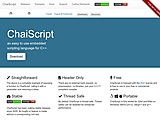 ChaiScript is an embedded scripting language for C++ designed from the ground up to be easy to use by the C++ developer.
ChaiScript is an embedded scripting language for C++ designed from the ground up to be easy to use by the C++ developer.
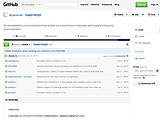 luaprompt is both an interactive Lua prompt that can be used instead of the official interpreter, as well as a module that provides a Lua command prompt that can be embedded in a host application. As a standalone interpreter it provides many conveniences that are missing from the official Lua interpreter. As an embedded prompt, it's meant for applications that use Lua as a configuration or interface language and can therefore benefit from an interactive prompt for debugging or regular use.
luaprompt is both an interactive Lua prompt that can be used instead of the official interpreter, as well as a module that provides a Lua command prompt that can be embedded in a host application. As a standalone interpreter it provides many conveniences that are missing from the official Lua interpreter. As an embedded prompt, it's meant for applications that use Lua as a configuration or interface language and can therefore benefit from an interactive prompt for debugging or regular use.
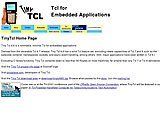 Tiny Tcl 6.8 is a rommable, minimal Tcl implementation for embedded applications. Derived from the venerable Tcl 6.7 release, Tiny Tcl 6.8 has a solid Tcl feature set, excluding newer capabilities of Tcl 7 and 8 such as the bytecode compiler, namespaces, sockets, and async event handling, among others. Excluding C library functions, Tiny Tcl compiles down to less than 60 Kbytes on most machines, far smaller than any Tcl 7 or Tcl 8 derivatives.
Tiny Tcl 6.8 is a rommable, minimal Tcl implementation for embedded applications. Derived from the venerable Tcl 6.7 release, Tiny Tcl 6.8 has a solid Tcl feature set, excluding newer capabilities of Tcl 7 and 8 such as the bytecode compiler, namespaces, sockets, and async event handling, among others. Excluding C library functions, Tiny Tcl compiles down to less than 60 Kbytes on most machines, far smaller than any Tcl 7 or Tcl 8 derivatives.
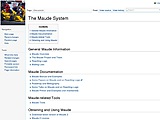 Maude is a high-performance reflective specification and programming language for a wide range of applications. Besides supporting order sorted equational algebra (in the style of OBJ3), it also supports a more general rewriting logic which need not be confluent or terminating. In this way, it is particularly suited for modeling concurrent object- oriented computation. It also includes various environments such as a model checker and an interactive theorem prover.
Maude is a high-performance reflective specification and programming language for a wide range of applications. Besides supporting order sorted equational algebra (in the style of OBJ3), it also supports a more general rewriting logic which need not be confluent or terminating. In this way, it is particularly suited for modeling concurrent object- oriented computation. It also includes various environments such as a model checker and an interactive theorem prover.
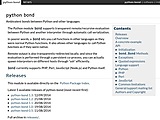 The Python module bond supports transparent remote/recursive evaluation between Python and another interpreter through automatic call serialization. In poorer words, a bond lets you call functions in other languages as they were normal Python functions. It also allows other languages to call Python functions as if they were native. Remote output is also transparently redirected locally, and since the evaluation is performed through a persistent co-process, you can actually spawn interpreters o
The Python module bond supports transparent remote/recursive evaluation between Python and another interpreter through automatic call serialization. In poorer words, a bond lets you call functions in other languages as they were normal Python functions. It also allows other languages to call Python functions as if they were native. Remote output is also transparently redirected locally, and since the evaluation is performed through a persistent co-process, you can actually spawn interpreters o
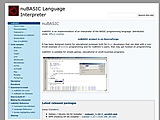 nuBASIC is a BASIC interpreter designed for educational purposes. It's implemented in C++11 and buildable on Linux or Windows. It allows programming simple games, educational or small business programs, comes with various examples, documentation, and a syntax highligting editor on Windows.
nuBASIC is a BASIC interpreter designed for educational purposes. It's implemented in C++11 and buildable on Linux or Windows. It allows programming simple games, educational or small business programs, comes with various examples, documentation, and a syntax highligting editor on Windows.
 PseudoD is an interpreted programming language for C and C++ with an entirely Spanish syntax losely based on Ada and D. It provides a limited set of operators and keywords. The implementation is just a few kilobytes.
PseudoD is an interpreted programming language for C and C++ with an entirely Spanish syntax losely based on Ada and D. It provides a limited set of operators and keywords. The implementation is just a few kilobytes.
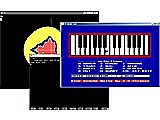 PC-BASIC is a cross-platform emulator for GW-BASIC 3.23, BASICA, PCjr Cartridge BASIC and Tandy-1000 GW-BASIC. It can run ASCII, bytecode and encrypted bytecode files, and supports the Microsoft Binary Format for floating point arithmetic. It includes graphics capabilities and sound output.
PC-BASIC is a cross-platform emulator for GW-BASIC 3.23, BASICA, PCjr Cartridge BASIC and Tandy-1000 GW-BASIC. It can run ASCII, bytecode and encrypted bytecode files, and supports the Microsoft Binary Format for floating point arithmetic. It includes graphics capabilities and sound output.
 Parrot is a parser toolkit and virtual machine optimized for dynamic and scripting languages. It was designed for Perl6 but supports Lua, Ruby, Python, Pascal, Tcl and Scheme implementations. The Parrot runtime is register-based, garbage-collected, provides Unicode-aware strings, polymorphic object containers, allows dynamic opcodes, and its bytecode is commonly compiled from PIR (Parrot Intermediate Language), PASM (Parrot Assembly), or NQP (Not Quite Perl).
Parrot is a parser toolkit and virtual machine optimized for dynamic and scripting languages. It was designed for Perl6 but supports Lua, Ruby, Python, Pascal, Tcl and Scheme implementations. The Parrot runtime is register-based, garbage-collected, provides Unicode-aware strings, polymorphic object containers, allows dynamic opcodes, and its bytecode is commonly compiled from PIR (Parrot Intermediate Language), PASM (Parrot Assembly), or NQP (Not Quite Perl).
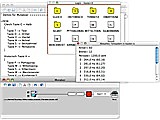 Mutabor is a microtuner, that is a program that allows performing and composing microtonal music using a normal MIDI keybord. But it's powerful description language is intended to allow permanent retunings and tuning logics in to describe, what's actually goes on. This allows a musician to use tone systems and pitch spaces which are outside of the scope of keyboard instruments, e.g. unlimited just intonation (Tonnetz) as described bei Martin Vogel or fast changing tunings as it is necessary f
Mutabor is a microtuner, that is a program that allows performing and composing microtonal music using a normal MIDI keybord. But it's powerful description language is intended to allow permanent retunings and tuning logics in to describe, what's actually goes on. This allows a musician to use tone systems and pitch spaces which are outside of the scope of keyboard instruments, e.g. unlimited just intonation (Tonnetz) as described bei Martin Vogel or fast changing tunings as it is necessary f
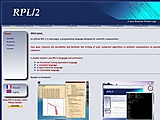 RPL/2 (Reverse Polish Lisp/2) is a langage derived from the RPL made by Hewlett-Packard for its HP-28S. It has some extensions (preprocessor, compilated libraries, new functions, parallel computing), a TeX output, and can draw graphics.
RPL/2 (Reverse Polish Lisp/2) is a langage derived from the RPL made by Hewlett-Packard for its HP-28S. It has some extensions (preprocessor, compilated libraries, new functions, parallel computing), a TeX output, and can draw graphics.
|